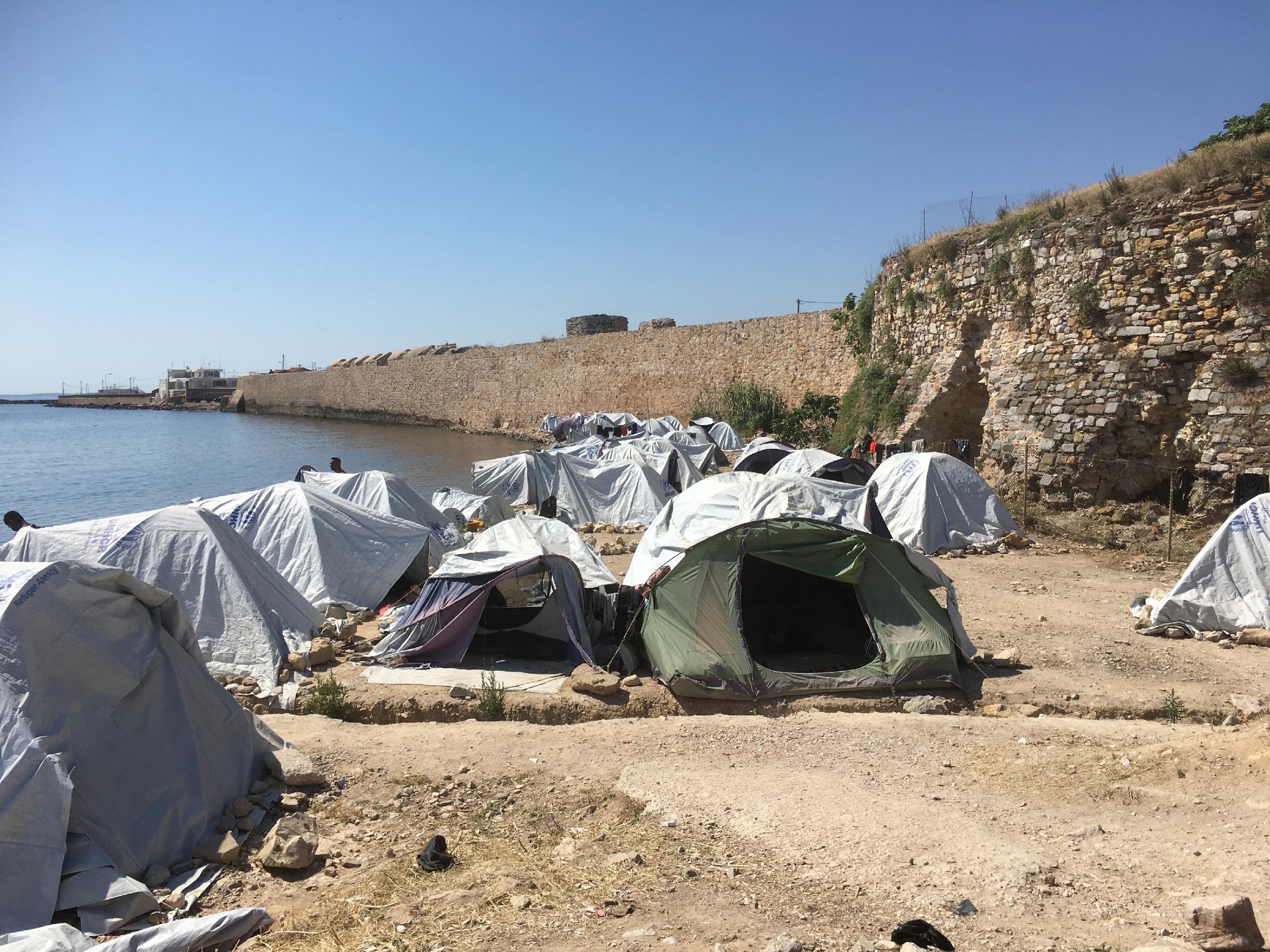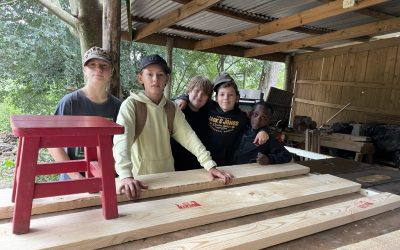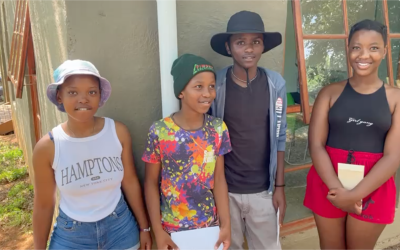Guest contributor Simon Hamilton describes his visit to a refugee education project in Greece on behalf of the Zoe Trust.
I had been living a wonderful life in Greece for six months and was planning a trip round some of the islands. Tanya asked me if I’d visit and report back on an education project for refugee kids on Chios that The Zoe Trust was interested in supporting. I’d done some volunteering in Athens with some of the refugee organisations there and I was intrigued to see the reality of how the project was run on one of the islands where refugees landed after their perilous journey from Turkey.
There are two refugee camps on the island of Chios. The official one is a detention centre at Vial, an old factory building in the hills above Chios town. It’s a depressing place and not easy to get to as I discovered when I tried to find it. The unofficial one, Souda, is on a beach in Chios town. As it is unofficial it does not exist in the eyes of any local, government, UNHCR or EU organisation. The numbers of refugees on the island is unknown with estimates between 1,500 and 3,000. The length of time children and families stay on the island varies tremendously and often depends on getting official papers or more likely forged documents. In the camps, the children can easily lose their sense of self worth. Living in the camps opens the children to physical, sexual and mental abuse. Some, even up to the age of ten, have never been to school.
Souda Camp
No education is available on the island for refugee children other than that provided by Be Aware and Share (BAAS). It’s a fundamental principle of the BAAS project that they provide education for the refugee children away from the camps. This enables a formal teaching structure with set timetables without any influence from the often chaotic, disorganized life in the camps. Each day the children are brought in from the camps for lessons by buses organised by BAAS volunteers and taken back afterwards. There is only one bus company willing to do this and it’s the biggest individual expense BAAS have.
I was shown round the schools by Jacob, a dedicated and totally committed volunteer who answered all the questions I put to him with an impressive honesty and openness. The three schools run by BAAS in the town of Chios were set up in early 2016. I was immediately impressed by the high standard and condition of the three buildings that BAAS had rented, the primary school age children (5-12), the High School for secondary age (12-20) and the Youth Centre providing vocational classes for secondary age (14-22). They were brightly decorated with fun child-friendly designs. Jacob ruefully commented that they were unlikely to get their deposit back on the buildings!
They teach approximately 250 children a week across the age-range. I would have loved to experience the teaching but I was not allowed into classes when children were being taught. This is a strict rule they have for all visitors to protect the integrity of the classroom.
Lessons are mainly given in English though some volunteers speak Farsi or Arabic. Lessons are geared to the age and ability of the children but include English, reading, writing, drawing and some maths with vocational studies such as arts and crafts and cookery for those most suited for them. One class has been looking at environmental issues. Children are encouraged to show their feelings at the start and end of a class by the use of Emojis. A phone number is available for parents to feed back to the schools.
The Youth Centre, for vocational secondary teaching, has three rooms where children can exercise, play games, design, dress-make and learn cookery.
Many of the children and young people have deep psychological problems and BAAS work with Save the Children on the island to provide counseling and psychological help. How long Save the Children will remain on Chios given the new funding rules is unknown. The UNHCR now send funds for refugees direct to Governments rather than to individual NGOs.
The volunteers are mainly in their twenties and are recruited through the BAAS head office in Switzerland where full background checks are made. BAAS look for volunteers who are most importantl extremely motivated. Pertinent qualifications are looked for too though not everyone selected is a qualified teacher. They look for people who are capable of igniting or re-igniting passions and interests in the children. I chatted briefly with five or six of them and all seemed to indeed be highly motivated and dedicated. This was summed up by Anna who told me: “If we are not here nothing will happen. I believe in these kids. That’s why I’m here.”
Although it was a short visit, the buildings that BAAS had rented, the classrooms they had set up, and the enthusiasm of the dedicated volunteers left me in no doubt that the children from Souda and Vial refugee camps find an excellent educational refuge from their often dangerous and chaotic life in the camps.
I’m delighted that my report back to The Zoe Trust has resulted in a donation to help the project which, given the end of EU funding, is desperately in need of funds. I hope that we can help them further. Please let us know if you have any funding ideas for this fantastic project. You can follow their news on their Facebook page, Refugee Education Chios.
SIMON HAMILTON
July 2017




